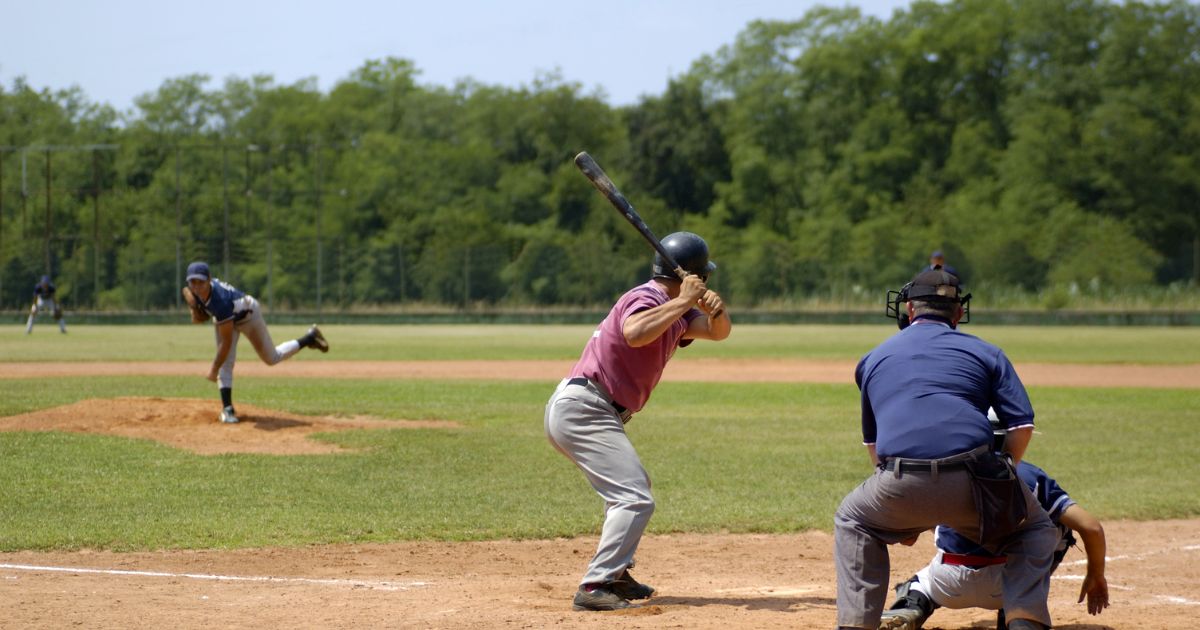Softball, a variant of baseball, is a beloved sport played by millions worldwide. Traditionally, it has been considered a predominantly women’s sport, while baseball, its counterpart, is typically seen as a sport for men.
The world of sports is continually evolving, challenging stereotypes and breaking barriers. In recent years, there has been a growing interest in the question: do men play softball? This exploration delves into the history, reasons, and implications of men participating in the sport of softball.
Softball is often associated with both recreational and competitive play, with numerous leagues and tournaments held worldwide. It was considered as women game, even during this time, there were men’s softball leagues and tournaments, and the sport remained accessible to all.
A Brief Overview of Softball
Before we delve into the specifics of men playing softball, let’s begin with a brief overview of the sport itself. Softball is a bat-and-ball game played between two teams, with the primary objective being to score runs by hitting the ball and advancing around bases.
It is played on a smaller field than baseball, and the ball used in softball is larger and softer, making it easier to hit and less dangerous. The reason behind why do women play softball. Softball is known for its fast-paced gameplay, where pitchers throw underhand and batters have less time to react compared to baseball.
The History of Softball
To understand the role of men in softball, it’s important to examine the sport’s historical roots. Softball’s origin can be traced back to the late 19th century when it was initially created as an indoor version of baseball. It was designed to be a recreational game that could be played indoors during the winter months. Over time, softball evolved and grew in popularity, becoming an outdoor sport as well.
Historically, softball was played by both men and women, particularly in the early years of its development. It wasn’t until the mid-20th century that gender segregation in sports became more pronounced, leading to the perception that softball was primarily a women’s sport.
Challenging Stereotypes: Men in Softball
In recent years, there has been a shift in attitudes towards gender roles in sports. Stereotypes that limited men’s involvement in softball are being challenged, and more men are participating in the sport, both recreationally and competitively. This change can be attributed to several factors.
Coed Softball Leagues
One of the most significant developments that have encouraged men to play softball is the rise of coed softball leagues. These leagues are designed to be inclusive, allowing both men and women to compete together on the same teams.
Coed leagues have gained popularity for their emphasis on fun, camaraderie, and inclusivity. This format breaks down gender barriers, fostering an environment where skill and sportsmanship matter more than gender.
Softball’s Adaptability
The adaptability of softball makes it appealing to people of all genders and ages. With its various formats and rules, the sport can be tailored to suit different skill levels and preferences. Men who may have initially played baseball or other sports find softball to be an accessible and enjoyable alternative.
Professional Male Softball Players
While female softball players have had well-established professional leagues, there are also male professional softball players. The presence of male professional players adds to the legitimacy and recognition of men’s involvement in the sport. These athletes serve as role models, inspiring other men to take up softball.
Breaking Stereotypes
As society continues to evolve, there is a growing emphasis on breaking stereotypes and challenging traditional gender roles. Men who choose to play softball are not only contributing to this societal change but also enriching the sport with their skills and passion.
Why Men Choose Softball
The reasons why men choose to play softball are diverse and reflect their personal interests and motivations. Some of the key factors that draw men to this sport include:
Enjoyment of the Game
At its core, softball is a game that brings joy to those who play it. Many men are drawn to softball simply because they find it fun and entertaining. The fast-paced nature of the sport and the camaraderie that comes with being part of a team are major attractions.
Camaraderie
Softball fosters a sense of camaraderie among teammates. Men who play softball often appreciate the bonds and friendships formed through their shared love of the game. The social aspect of the sport is a significant draw for many.
Competitive Spirit
For those men who have a competitive spirit, softball provides an opportunity to compete at a high level. The sport demands skill, strategy, and teamwork, making it an appealing choice for those seeking a competitive outlet.
Physical Activity
Softball is a physically demanding sport that offers a great workout. Men who are looking to stay active and maintain their fitness levels often turn to softball as a recreational or fitness-driven pursuit.
Family and Community Involvement
In many cases, men become involved in softball through family or community connections. They may coach their children’s teams or participate in local leagues, contributing to the sport’s growth at the grassroots level.
Challenges and Controversies
While men’s participation in softball has seen significant growth and acceptance, it is not without its challenges and controversies. Some of the issues that have arisen in this context include.
ertainly, here’s a short table summarizing the challenges and controversies related to men playing softball:
| Challenges and Controversies | Description |
|---|---|
| Competitive Disparity | Concerns about skill imbalances in coed leagues. |
| Gender Stereotyping | Prejudice and stereotypes faced by men in softball. |
| Inequity in Recognition | Disparities in recognition and support compared to female players. |
| Regulations and Rules | Complex and varying regulations in men’s participation in women’s leagues. |
Competitive Disparity
In some cases, the participation of highly skilled male athletes in coed leagues has raised concerns about competitive fairness. Male players with a background in baseball or other high-level sports can dominate in coed leagues, leading to questions about the balance of competition.
Gender Stereotyping
Despite the progress made in breaking down gender stereotypes in sports, there are still instances where men who play softball face prejudice or stereotypes. Some people may question their masculinity or motives for participating in a sport traditionally associated with women.
Inequity in Recognition
Male softball players, particularly at the amateur level, often receive less recognition and support than their female counterparts. Female softball players have well-established professional leagues, while male players may have fewer opportunities to compete at the highest level.
Regulations and Rules
In some regions, regulations and rules regarding the inclusion of men in women’s softball leagues can be complex and vary significantly. This can create challenges for men looking to compete in women’s leagues.
The Future of Men in Softball

As the sports landscape continues to evolve, it is likely that men’s involvement in softball will continue to grow and be further accepted. The future of men in softball may involve:
Increased Recognition
With the continued growth of coed leagues and the recognition of men’s professional softball, male players may receive increased recognition for their contributions to the sport. This could lead to more opportunities for male athletes at various levels of play.
Rule Adjustments
Organizations and leagues may consider adjusting rules and regulations to ensure competitive fairness in coed leagues. These changes may involve skill-based handicaps or other measures to maintain an even playing field.
Broader Acceptance
Over time, it is possible that societal attitudes
towards men in softball will become more accepting and inclusive. As stereotypes and gender biases are challenged and dismantled, more men may feel encouraged to participate in the sport.
Grassroots Development
The growth of men’s softball may also involve increased grassroots development programs. Initiatives aimed at introducing boys and young men to the sport can play a crucial role in its continued growth.
FAQs
1. Can men play in women’s softball leagues?
- In coed or recreational leagues, men are often allowed to play in women’s softball leagues. Eligibility and rules may vary, so it’s essential to check with the specific league or organization.
2. Are there professional men’s softball leagues?
- Yes, there are professional men’s softball leagues, though they may not receive as much recognition as women’s leagues. Professional male softball players compete at the highest level of the sport.
3. What are the differences between baseball and softball?
- Softball and baseball share similarities, but they differ in terms of field size, ball type, pitching style, and other rules. While baseball is more popular among men, both genders can play softball.
Conclusion
In answer to the question, Do men play softball? the answer is a resounding yes. Men are not only playing softball, but they are also making significant contributions to the sport at all levels. While there are challenges and controversies, the inclusion of men in softball is reflective of the changing dynamics in sports and society.
Softball’s adaptability, emphasis on enjoyment and camaraderie, and its role in fostering inclusivity have attracted men from diverse backgrounds and motivations. As the future unfolds, men’s participation in softball is likely to continue evolving, contributing to the sport’s growth and diversity. Ultimately, it’s not about gender; it’s about the love of the game and the shared experiences it creates for all who participate.








